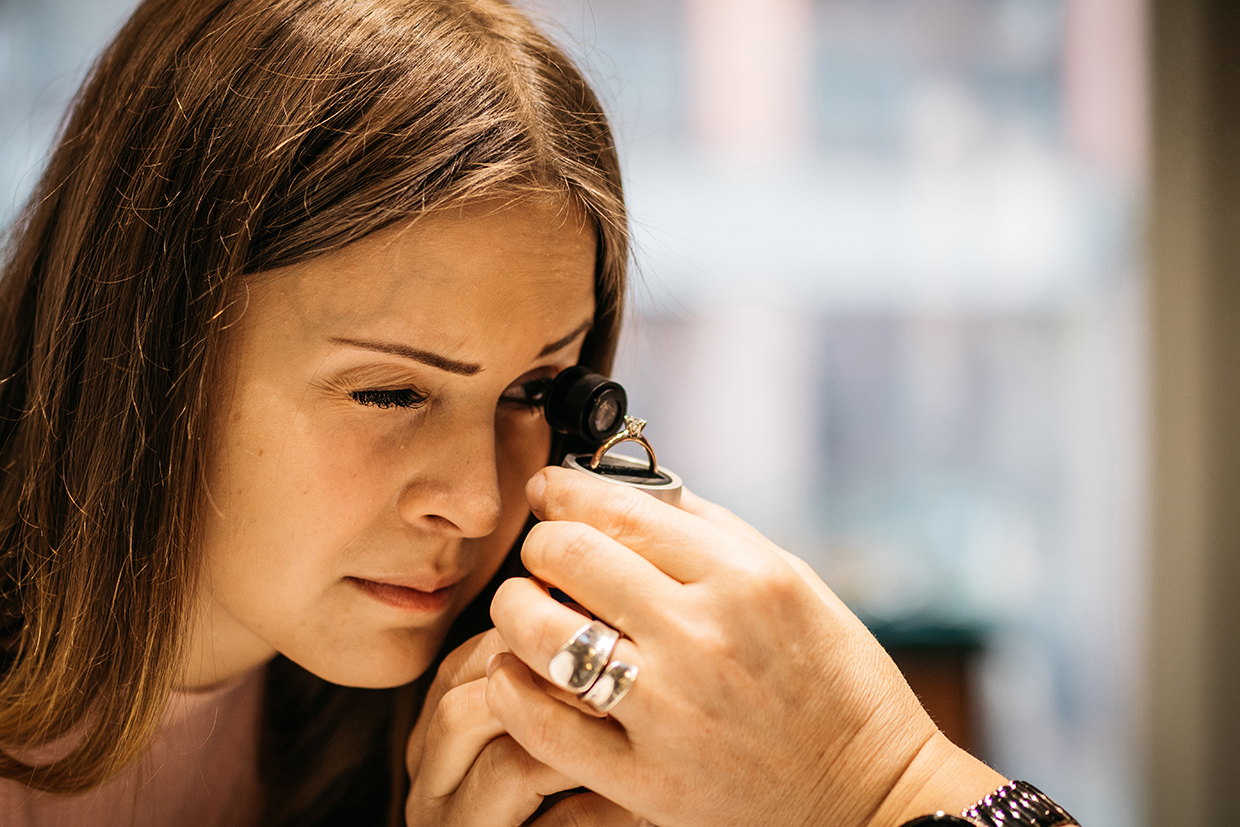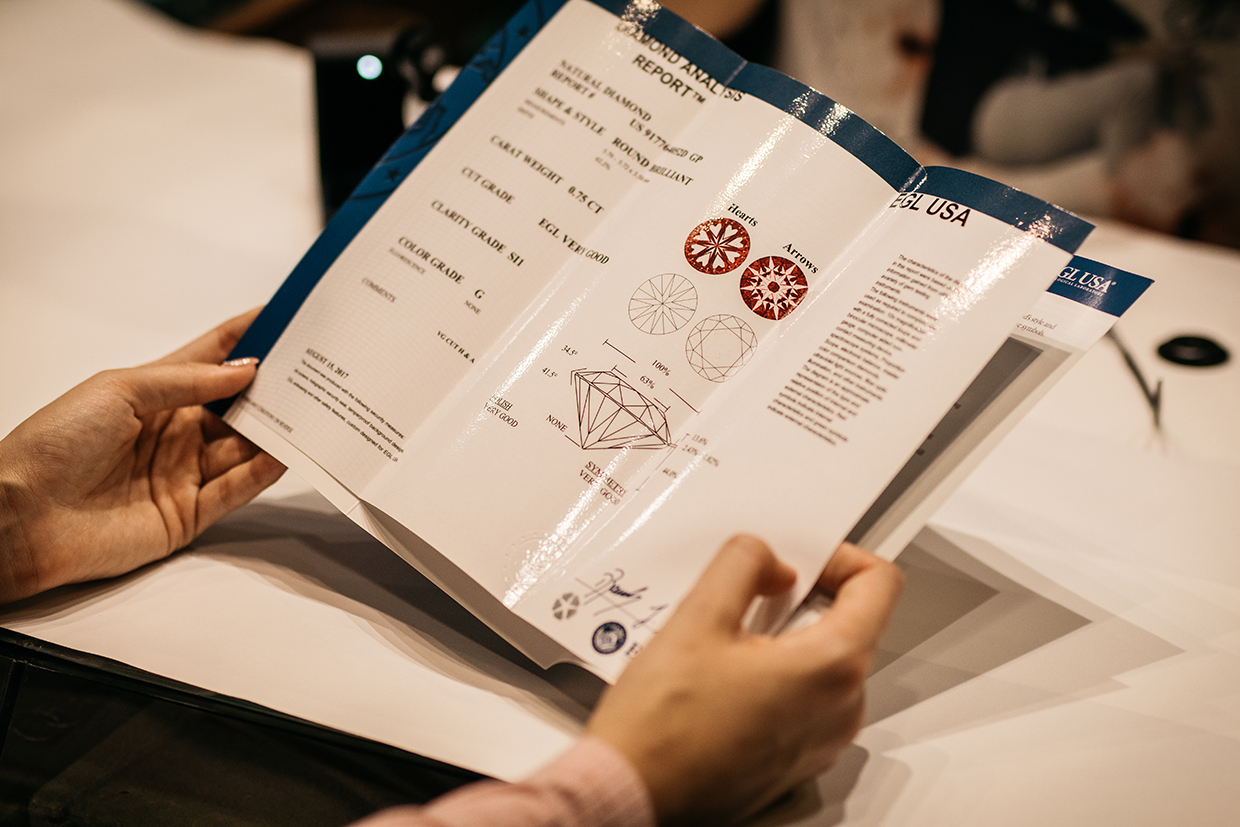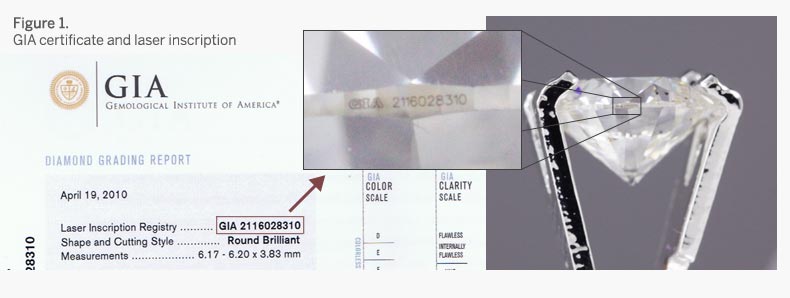Understanding the basic characteristics of a diamond (the 4Cs - colour, Clarity, Cut, Carat) and becoming familiar with the certificate guaranteeing the authenticity of the stone will help you better understand the true value of the stone before you decide to buy it.

4C DIAMOND, Properties and Primary Criteria of the GEM
- Colour
- Clarity
- Cut
- Carat
- Certificate – birth certificate of the gem
1. DIAMOND colour
Colour is one of the basic attributes of a diamond. Most diamonds are colourless to faintly tinted yellow. The colour quality of a diamond is determined by the D-Z scale established by the Gemological Institute of America (GIA).
The highest grade is colourless (D, premium white +). The higher the colourlessness of the stone, the higher the price rises. Diamonds can come in all colours, ranging from faint browns to bright yellows, pinks, purples, reds and blues.

2. Clarity of DIAMOND
All diamonds bear signs of their growth history. Clarity grades classify jewellery quality diamonds according to subtle internal characteristics. The clarity scale expresses the size, number, location and visibility of characteristics at 10x magnification.
The fewer spots and impurities there are on the surface or inside the diamond, the higher the clarity level of the diamond and the higher its value. It is graded on a scale from the highest grade FL-I.
FLAWLESS (FL) - no external or internal characteristics
INTERNALLY FLAWLESS (IF) - absolutely transparent without inclusions
VERY, VERY SMALL INCLUSION (VVS) - very very small inclusions that are difficult to identify at magnification 10
VERY SLIGHTLY INCLUDED (VS) - very small inclusions that are difficult to identify at magnification 10
SLIGHTLY INCLUDED (SI) - small inclusions that are not visible to the naked eye through the crown
IMPERFECT (I) - distinct inclusions that are visible to the naked eye through the crown

3. DIAMOND CUT
The cut is the most important and also the most complex attribute when assessing a diamond. Cutting rough diamonds of all shapes and sizes is a great art that requires highly skilled cutters with impeccable manual dexterity.
Diamonds can be cut into different shapes (eg square, teardrop and heart). The round brilliant cut is probably the most well-known shape. The proportions of the cut are a significant factor in determining the brilliantness, luster and sparkle of a diamond. Symmetry classes describe the deviations of various parameters that express the proportions of a diamond.
Brilliant reaches its highest possible beauty only if precisely calculated angles and planes are used in the brilliant cut. So the quality of a diamond is always estimated based on two components: brilliance and appearance.
4. Carat – the weight of the diamond
Besides colour, clarity, and cut, weight (weight) is another determining factor for identifying and determining the value of a diamond. The weight of all gemstones is internationally measured in carats (commercially abbreviated "ct").
1 ct (metric carat) = 200 mg = 1/5 g (gram)
Carats are divided into tenths, hundredths and – when using electronic carat scales – even thousandths. Very small diamonds are measured in "points", one "point" being equal to one hundredth of a carat (0.01 ct). The weight of diamonds is determined by weighing on diamond scales.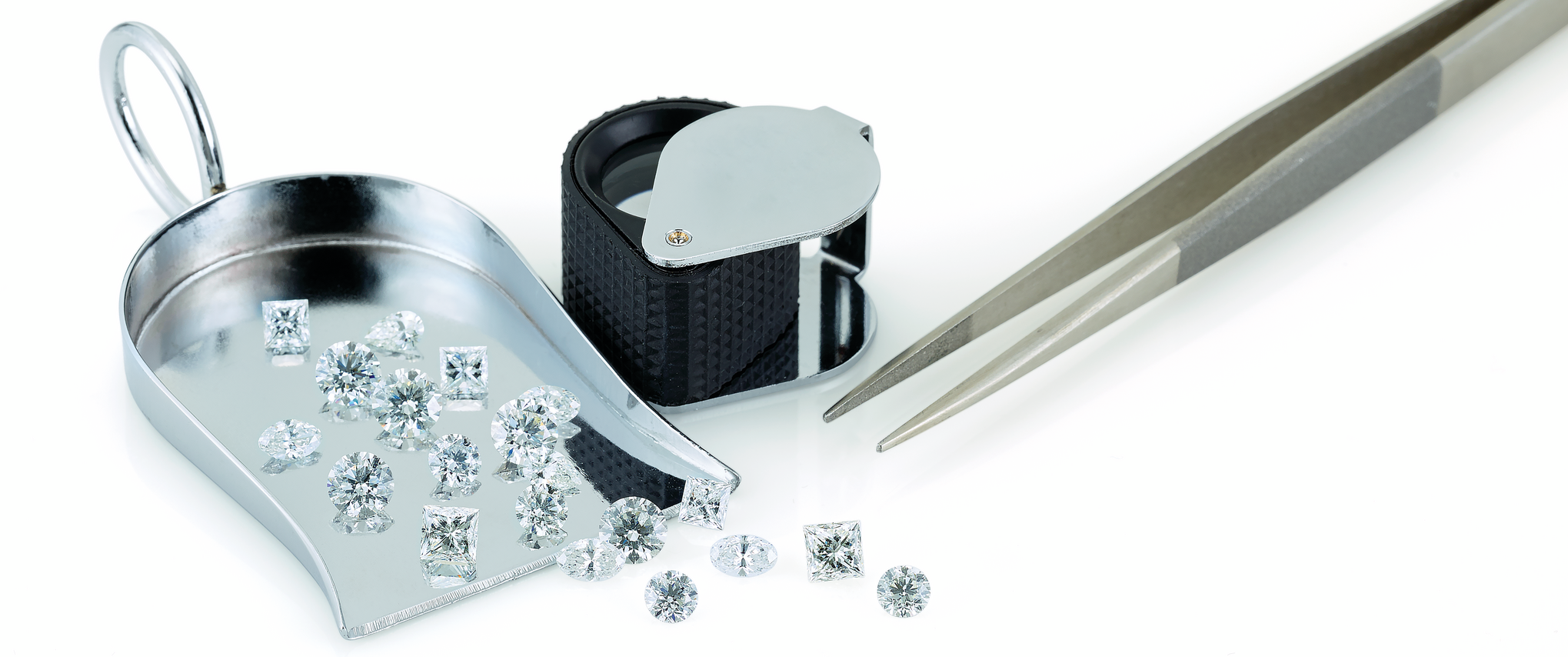
STONE AUTHENTICITY CERTIFICATE
The certificate of authenticity is the diamond's birth certificate and is issued on the basis of an impartial professional examination. This verifies the diamond's attributes and at the same time its suitability for use in jewellery. The certificate is issued by gemological laboratories all over the world.
Among the most famous and respected institutions are The Gemological Institute of America (GIA), International Institute of Diamond Grading and Research (IIDGR) a The International Gemological Institute (IGI). This trio has the best reputation worldwide and you can really rely on their ratings.
A diamond certificate certifies the quality of the stone without estimating its price. Usually issued for diamonds larger than 0.30 ct.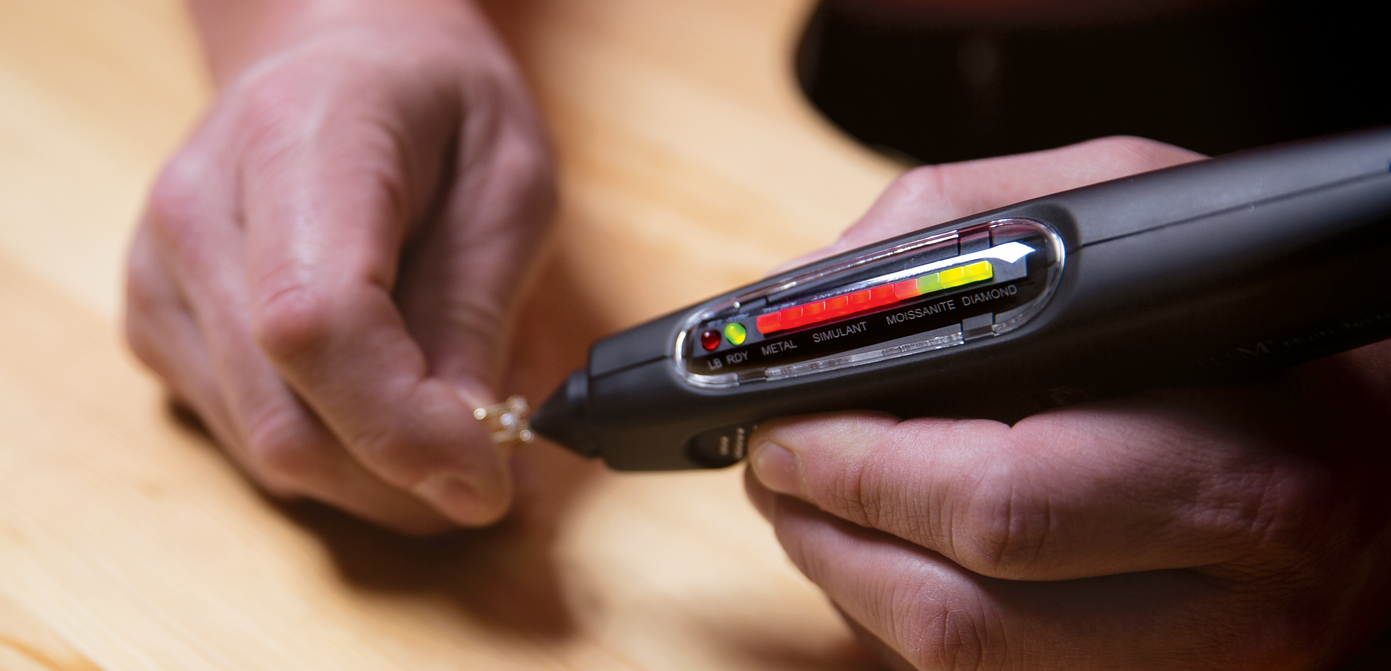
In the SALABA Goldsmith Studio, we offer certified natural and laboratory diamonds with a certificate issued by the well-known American Gemological Institute GIA or EGL USA.
You can view the current offer here.
Every diamond over 0.30 ct supplied by us has its identification number marked on the round face of the stone, which is the same as the certificate number. Each of our customers can check the match of these identification numbers at any time and therefore has a lifetime guarantee of the authenticity and unmistakability of their diamond.
